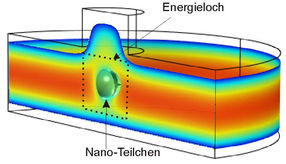New data from EMBLEM study shows epratuzumab provided efficacy for patients suffering from systemic lupus erythematosus
Advertisement
UCB and Immunomedics Inc. announced new lupus drug candidate, epratuzumab, provided a significant reduction in disease activity in patients with moderate to severe active systemic lupus erythematosus (SLE). Data presented at the European League Against Rheumatism (EULAR) meeting in Rome from the phase IIb study, EMBLEM(TM), showed the clinical efficacy of epratuzumab in patients with SLE.
"We are very encouraged by the findings of this new study which demonstrate that in a patient population with predominantly severe disease activity, epratuzumab is improving patients' health as quickly as week 12, with the emergence of improvements as early as week 8," commented lead study investigator Daniel J. Wallace, M.D., Clinical Professor of Medicine, David Geffen School of Medicine, UCLA. He added, "In a short study, such as this one, seeing this level of patient improvement so rapidly is a hopeful sign of the drug's potential to become an effective new treatment option."
EMBLEM(TM) was a 12-week, multicenter, phase IIb, randomized, double-blind, placebo-controlled study to assess the efficacy and safety of epratuzumab, and to define a dose and regimen in patients with moderate to severe SLE. The primary efficacy measure in EMBLEM(TM) was a combined response index endpoint including several indices of SLE disease activity, primarily emphasizing BILAG.
In the EMBLEM(TM) study, combined responder index rates were numerically superior in all epratuzumab groups than in the placebo group, reaching statistical significance in the epratuzumab 600 mg weekly group (P=0.0265) and the combined group of all 74 patients who received a cumulative dose of 2,400 mg (P=0.0239) during the 12-week treatment cycle. In both these groups, responder rates were twice those of placebo.
Based on analysis of improvement in BILAG 2004 by body system in EMBLEM(TM), most patients had symptom reduction or absence of active disease within specific body systems after treatment with epratuzumab. Efficacy was particularly prominent in cardiorespiratory and neuropsychiatric systems in which symptom improvements are often difficult to achieve. This BILAG analysis reported the results for the BILAG improvement component of the combined response index in body systems for which a sufficient number of patients per treatment group had baseline disease activity that allowed an assessment of response. These systems were: musculoskeletal, mucocutaneous, cardiorespiratory, neuropsychiatric, constitutional and renal.





























































